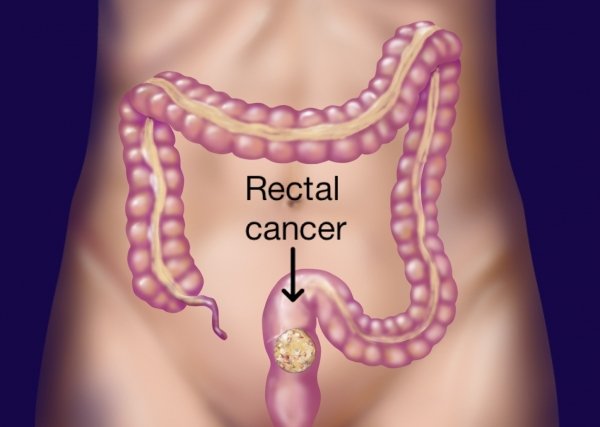Colo-rectal Cancer
Overview
Colorectal cancer (CRC) — encompassing cancers of the colon and rectum — is one of the most common malignancies worldwide and a leading cause of cancer-related deaths. The good news is that colorectal cancer is highly preventable and treatable, especially when detected early through screening. Advances in diagnostic imaging, molecular genetics, and precision radiotherapy have significantly improved outcomes for patients.
Causes and Risk Factors
Colorectal cancer typically develops from precancerous polyps in the lining of the colon or rectum that undergo gradual malignant transformation. The major risk factors include:
Age: Most cases occur after age 50.
Diet: High intake of red and processed meats; low fiber consumption.
Lifestyle factors: Physical inactivity, obesity, smoking, and alcohol use.
Chronic bowel conditions: Ulcerative colitis or Crohn’s disease increase risk.
Family history: Having close relatives with colorectal cancer or polyps.
Genetic Factors
Genetic mutations play a crucial role in a subset of colorectal cancers. The key hereditary syndromes include:
Lynch Syndrome (Hereditary Nonpolyposis Colorectal Cancer, HNPCC): Caused by defects in mismatch repair (MMR) genes — MLH1, MSH2, MSH6, or PMS2.
Familial Adenomatous Polyposis (FAP): Due to mutations in the APC gene, leading to hundreds of polyps and near-100% lifetime risk if untreated.
Other mutations: In KRAS, NRAS, and BRAF genes influence tumor behavior and response to targeted therapy.
Genetic counseling and testing are essential for families with strong histories of colorectal cancer to guide screening and preventive strategies.
Common Symptoms
Early colorectal cancer may not cause symptoms, which is why screening is critical. When symptoms occur, they can include:
Change in bowel habits (diarrhea, constipation, or narrowing of stool).
Blood in stool or rectal bleeding.
Persistent abdominal discomfort (cramping, bloating, or pain).
Unexplained weight loss or fatigue.
A feeling of incomplete evacuation after a bowel movement.
Any of these persistent symptoms should prompt prompt medical evaluation.
Screening and Prevention
Regular screening helps detect colorectal cancer at an early, curable stage or even prevent it by removing precancerous polyps.
Recommended screening methods include:
Colonoscopy: Gold standard test; recommended every 10 years starting at age 45–50 (earlier if high-risk).
Fecal Occult Blood Test (FOBT) or FIT test: Detects hidden blood in stool; done annually.
CT Colonography or Sigmoidoscopy: Alternatives where full colonoscopy is not feasible.
Prevention strategies include a high-fiber diet, maintaining healthy weight, regular exercise, avoiding tobacco and alcohol, and ensuring adequate calcium and vitamin D intake.
Treatment Approaches
Treatment depends on the stage and location of the tumor and may include:
Surgery: The primary treatment for most early-stage colorectal cancers; involves removing the tumor and nearby lymph nodes.
Radiation Therapy: Particularly important for rectal cancers, used before (neoadjuvant) or after (adjuvant) surgery to shrink tumors or prevent recurrence.
Chemotherapy: Used for advanced disease or to eliminate microscopic disease after surgery.
Targeted Therapy: Drugs like bevacizumab and cetuximab target specific molecular pathways in cancer cells.
Immunotherapy: Effective in select patients with microsatellite instability (MSI-high) or mismatch repair-deficient tumors.
Cutting-Edge Cancer Care by Dr. Rajesh Natte
Dr. Rajesh Natte, a leading radiation oncologist, brings state-of-the-art technology and precision to the treatment of colorectal cancers.
Using Image-Guided Radiotherapy (IGRT), Intensity-Modulated Radiotherapy (IMRT), and Volumetric Modulated Arc Therapy (VMAT), Dr. Natte delivers highly conformal doses that target tumors precisely while sparing nearby organs such as the small bowel, bladder, and femoral heads.
With the integration of MRI-based planning, AI-assisted adaptive radiotherapy, and motion management techniques, Dr. Natte customizes each treatment plan for optimal accuracy and minimal side effects. This approach allows for better tumor control, reduced toxicity, and improved quality of life for patients.
His combination of advanced technology and compassionate, evidence-based care ensures that patients receive world-class treatment close to home.
Summary
Colorectal cancer is largely preventable and curable when detected early. Regular screening, a healthy lifestyle, and timely treatment are the keys to long-term survival. With advanced radiation techniques and personalized care, Dr. Rajesh Natte continues to set new standards in precision cancer therapy — helping patients overcome colorectal cancer with confidence and dignity.


